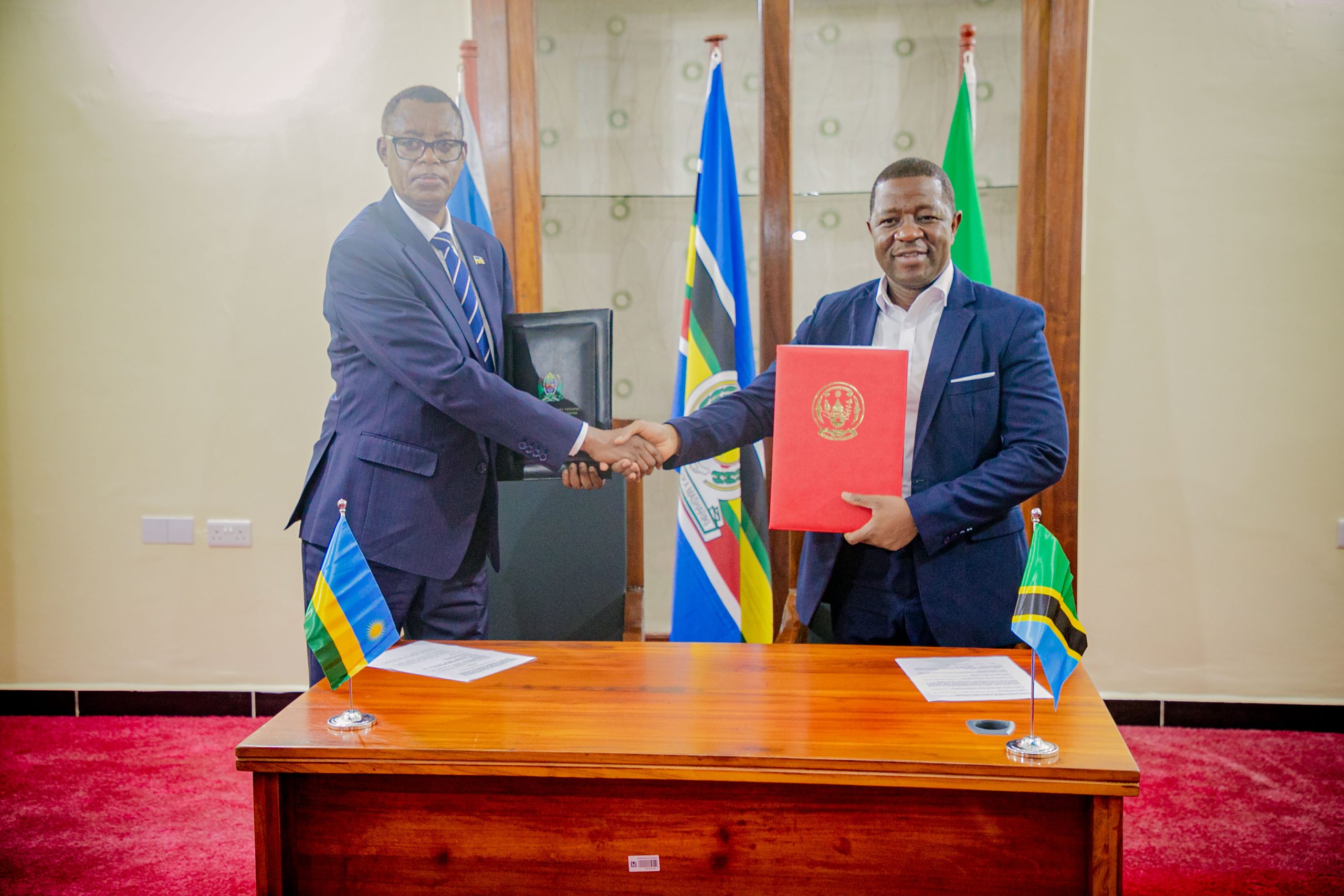Rwanda and Tanzania have signed a Memorandum of Understanding (MoU) to solidify their commitment to enhancing the dairy industry.
The Memorandum was signed between Rwanda’s Minister of State, Rtrd Gen. James Kabarebe and Tanzania’s Minister of Livestock and Fisheries, Hon. Abdallah Hamis Ulega, during a ceremony on Friday in Zanzibar.
This collaborative effort underscores the shared goal of leveraging expertise, technology, and best practices to boost the dairy sector in both nations.
The MoU focuses on mutual cooperation in developing sustainable dairy farming, aligning with broader regional initiatives to strengthen economic ties.
Rwanda has witnessed remarkable growth in its dairy sector, with the national milk production increasing from 142,511 Metric Tons in 2005 to almost 1 billion Metric Tons in 2022.
As per the National Strategy for Transformation (NST1), the country aims to reach 1,274,554 Metric Tons of milk per year by end of the year.
This significant progress is attributed to the government’s concerted efforts, along with development partners, to establish Milk Collection Centers (MCCs) for smooth gathering, quality testing, and 50 dairy processing units.
Presently, Rwanda boasts 132 MCCs with a total milk cooling capacity of 483,000 L scattered across different districts. Additionally, the country has 50 dairy processing units, including 7 large processing plants and 43 Dairy Small and Medium Enterprises (SMEs), with a total processing capacity of 254,000 liters per day, according to MINAGRI.
In Tanzania, where the dairy sector is a key player in the livestock industry, milk production increased from 3.4 billion liters in the fiscal year 2021/22 to 3.6 billion in the 2022/23 fiscal year—a five percent increment.
However, due to a deficit, Tanzania had to import milk, emphasizing the nation’s need for 12 billion liters.
The economic impact of the dairy sector is substantial, generating significant revenue for both countries.
This collaboration with Rwanda presents an opportunity for knowledge exchange, potentially enhancing Tanzania’s dairy industry and contributing to its goal of self-sufficiency.
As both nations work towards sustainable development goals, this strategic alliance sets the stage for positive advancements in technology, research, and market access in the dairy sector, fostering economic growth and prosperity.



















